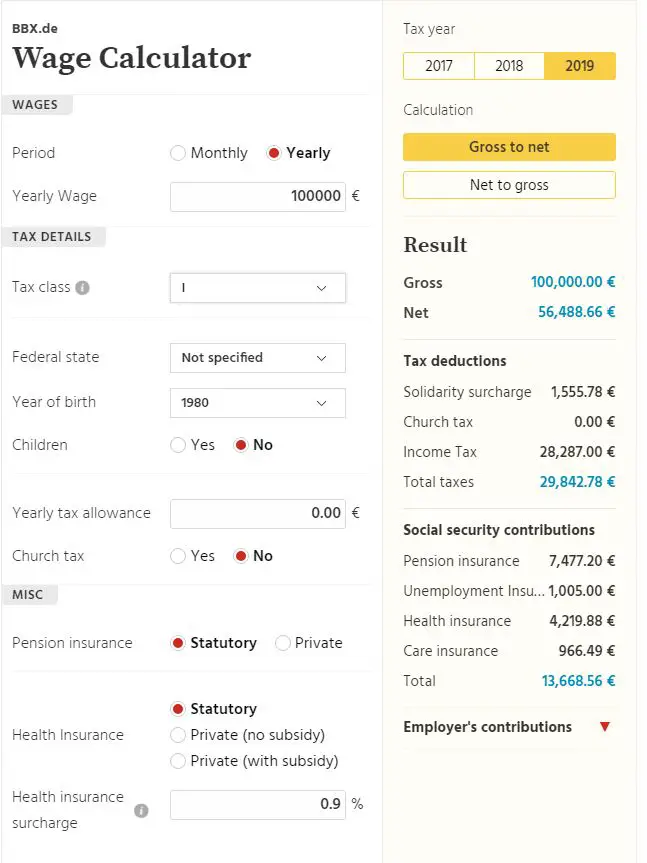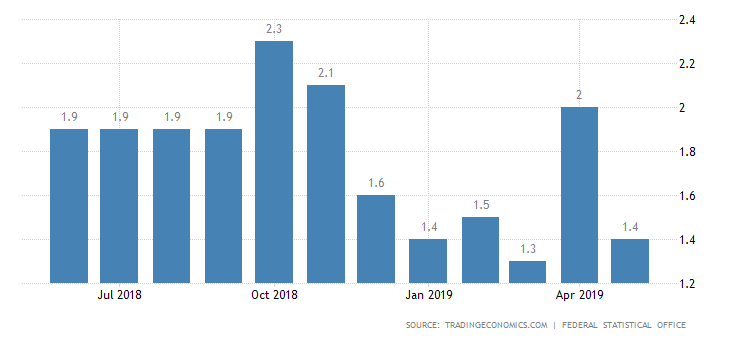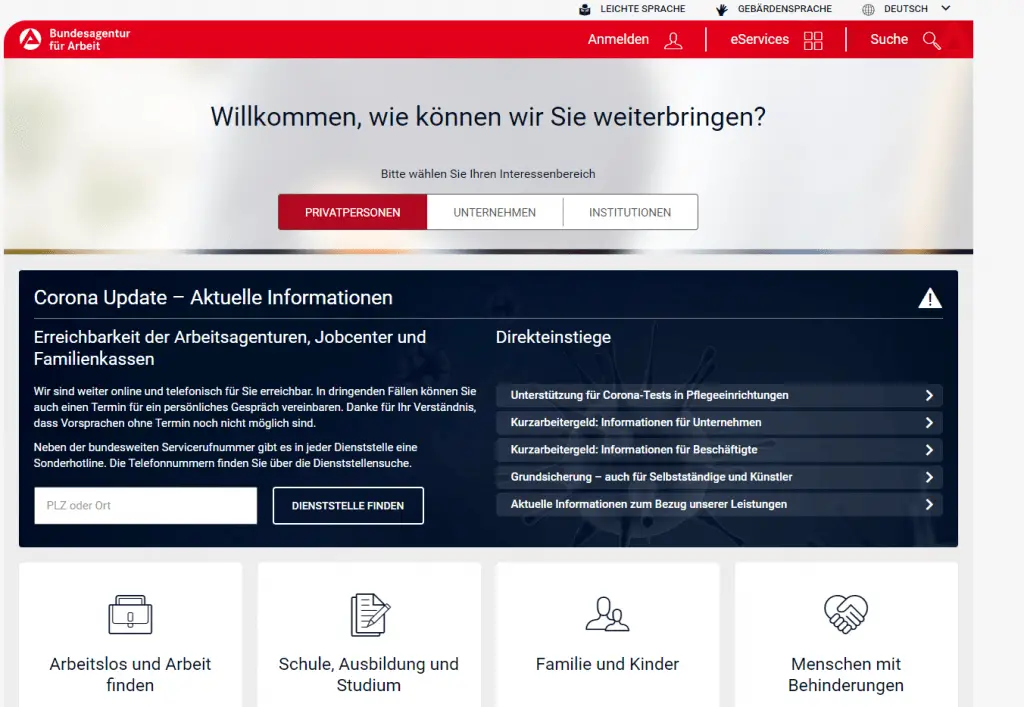 I moved from New York City, one of the most expensive cities in the world. After spending six months in Frankfurt, it is clear that it comes nowhere close to the costs associated with living in the Big Apple. Similarly, anyone moving from London will also find Frankfurt to be quite a bargain in comparison.
Note that I will update this post from time to time as I become more familiar with living in Germany! If you’re moving to Germany, make sure to read my other posts detailing my ex-pat life in the country.
For those planning or thinking of moving to Frankfurt, make sure to also read why I absolutely love living in the financial capital of Germany!
This post is also a part of my guide to living in Frankfurt, Germany where I list out all the things you need to know as an expat in Frankfurt and Germany.
Update 2022/2023: With the post pandemic economy and the war in Ukraine, Germany and the rest of the EU are experiencing inflation that hasn’t been seen for 40+ years. Inflation in Germany is at an astronomical, emerging market style 10%. Therefore, the costs of the categories on this post have all increased by at least 15-20%.
I moved from New York City, one of the most expensive cities in the world. After spending six months in Frankfurt, it is clear that it comes nowhere close to the costs associated with living in the Big Apple. Similarly, anyone moving from London will also find Frankfurt to be quite a bargain in comparison.
Note that I will update this post from time to time as I become more familiar with living in Germany! If you’re moving to Germany, make sure to read my other posts detailing my ex-pat life in the country.
For those planning or thinking of moving to Frankfurt, make sure to also read why I absolutely love living in the financial capital of Germany!
This post is also a part of my guide to living in Frankfurt, Germany where I list out all the things you need to know as an expat in Frankfurt and Germany.
Update 2022/2023: With the post pandemic economy and the war in Ukraine, Germany and the rest of the EU are experiencing inflation that hasn’t been seen for 40+ years. Inflation in Germany is at an astronomical, emerging market style 10%. Therefore, the costs of the categories on this post have all increased by at least 15-20%.
Table Of Contents
show
Cost of living will increase faster in Frankfurt
As Frankfurt is the financial capital of Germany, it has enjoyed quite a robust economy over the years. After the UK announced it wanted to leave the European Union, many banks and other companies announced they were moving their post Brexit operations to Frankfurt. This means the cost of living has increased and will likely increase faster than the rest of Germany going forward. Keep this in mind when planning a move to this city long term. Salaries are generally lower in Frankfurt and Germany as a whole in comparison to the other Financial hubs of the world. However, Germany enjoys a fantastic healthcare system, free education, and an array of other social benefits that offset the costs you’d have to bear in other countries (like America). Nevertheless, as you’ll read in this post, the costs in Frankfurt are generally quite low in comparison to other financial hubs. That’s why I will say this straight up: Frankfurt has the best income to expense ratio in the entire European Union. Yes I said it. Feel free to debate me on this matter!
Taxation in Germany
Taxes in Germany are one of the highest in the world. The first €9,169 (or €18,338 for married couples submitting a combined return) earned each year is tax free. Any amount after that is subject to income tax. Income tax in Germany is progressive: first, income tax rates start at 14%, then they rise incrementally to 42%; last, very high income levels are taxed at 45%. The top tax rate of 42% applies to taxable income above €55,961. Finally, for taxable income above €265,327, a 45% tax is applicable. These rates go down significantly if you’re married and a single earner. You would move from Tax Class I to Tax class III which significantly reduces your tax obligations.
Inflation in Germany
Compared to living in South Africa, the inflation rate in Germany is much lower than most of the world. Inflation is somewhere between 1% and 2% over the past decade and will likely not increase more than this. Of course, living in the big cities like Frankfurt, Berlin, Munich, Hamburg, Cologne etc. you can expect inflation to be higher just because the cost of rent always increases. I don’t worry about inflation in Germany like I would living in a developed country. Also, interest rates are 0% so don’t expect to receive any money from your bank accounts here.
Rent Costs In Frankfurt – €950
Without a doubt, rent will make up the majority of your monthly expenses. Just like every major city in the world. everyone in Frankfurt complains about the rising costs of rent. It’s not super cheap to live here. If you are looking for a 1 bedroom apartment in the city center, you’re looking at €1,000 a month or more (this does not include electricity either). Competition for these types of units are extremely high as there’s a housing shortage. If you’re looking for 2 bedrooms, then you’ll need to spend roughly €1,500-2,000. In general, I think apartments in the Frankfurt city center neighborhoods average about €15-€20 per square meter and progressively cheaper as you get further away from the Innenstadt. To better understand Frankfurt’s neighborhoods, make sure to read my Frankfurt neighborhood guide.


Car and Car Insurance – €0
A lot of people wonder if a car is necessary in Germany. I will say it here loud and clear. If you’re living and working in Frankfurt City, and do not have family you need to visit regularly in Germany, there is no reason to own a car in Frankfurt. The public transportation is absolutely fantastic and will get you anywhere reliably and fast. Frankfurt is also a tiny city and a bike is really all you’ll need to get where you want to go. Any Germans reading this and disagree with me, please move to New York City for a few years and get back to me!

Transportation in Frankfurt – €40
Public transportation is absolutely fantastic in Frankfurt. I’ve really enjoyed taking the U-Bahn, S-Bahn, and Trams in this city. It is reliable, clean, and comfortable. The S-Bahn to the airport is especially a treat and perhaps one of my favorite things about Frankfurt (the airport is 15 minutes away). However, my current apartment is only about 25 minutes walking to my work so while I could take the U-Bahn 3 stops, I choose to bike or walk to work.



Gym – €60 per month
I need to have a good gym wherever I am living. Frankfurt thankfully has a plethora of high quality and affordable gym options. I’ve written in detail about the gyms/fitness club options in Frankfurt and in the end, I ended up choosing Fit Seven Eleven. I pay €50 a month and another €60 a year for maintenance fees (which is questionable but it is common in Germany). The €50 is my corporate discount and it is €80 normally.

Mobile Service – €25 per month
In addition to home internet, cell phones are very affordable in Germany. The four main providers are Telekom, Vodafone, O2, and 1und1 and each offer plans in different price ranges. Telekom is the most comprehensive and most expensive with O2 normally being the cheapest. There are also lots of contractors that advertise service under their name but they just subcontract spectrum on one of the main providers.

Electricity – €80
Electricity is normally not included as part of the warm rent (Gesamtmiete) in Germany from my experience. You need to register with a provider yourself and pay the monthly bill. However, the apartment I’m renting just happens to have everything included in the Nebenkosten (extra costs, or the difference between the warm rent and cold rent). Electricity of course varies wildly depending on your usage but I think something like €0.5-€1 is a reasonable amount to budget for costs per month.
Wifi/TV – €50
I have not had a cable subscription since 2012 because I find it pointless in today’s age of HBO, Netflix, Amazon Video etc. Also, living in Germany what the hell would I even watch on German cable television? I couldn’t understand anything. So knowing that, I only subscribe to an internet plan. Internet is quite cheap in Germany. You can get unlimited 100 mbps plans from 1und1, Vodafone, Telekom etc. for about €30 or so.

Food/Entertainment – €1,000
This is definitely the largest expense after rent. I’m not a fan of cooking because there’s just not enough time in the day and grocery stores are completely closed on Sundays in Germany! I largely pick food up and enjoy eating out. Eating out in Frankfurt is quite affordable given what the salaries are. There are loads of restaurants serving all different types of food at all price ranges.

 There are many grocery stores in Frankfurt with the biggest being Rewe and Aldi. Prices are pretty normal I think although I’ve not done much grocery shopping. Most German’s probably spend considerably less than the €1,000-1,250 that I spend on food and entertainment by buying groceries so you could probably half my number if necessary.
There are many grocery stores in Frankfurt with the biggest being Rewe and Aldi. Prices are pretty normal I think although I’ve not done much grocery shopping. Most German’s probably spend considerably less than the €1,000-1,250 that I spend on food and entertainment by buying groceries so you could probably half my number if necessary.
Adding It All Up – Frankfurt Cost of living
Rent and Electricity: €950 Car: €0 Gym: €60 Internet: €50 / 2 = €25 Cellphone: €25 Transportation” €40 Food/Entertainment: €1,000 – €1,250
= €2,100 – €2,350 per month for all regular expenses Obviously there are just random things every month you end up paying for but this about sums up the must pay expenses of my life in Germany so far. So what happens to the rest of the money? Life in Germany is pretty good. Costs are reasonable and all the social benefits you need in life are provided as part of your taxes. I have lots of plans to travel the country which is where all my savings will go. The only thing I could ask for is better weather!
What do things cost?
What do most things cost here? Well it’s entirely dependent on where you are and which type of establishments you frequent in Frankfurt. However, here is a very rough idea of what costs you can expect to have in the city. This list is updated as of 2023/2024 to account for the rise in global inflation!
-
- Local German Beer: €4-6
- Glass of Wine: €5-7
- Shot of non top shelf liquor: €5-6
- 300g Fillet at steakhouse: €35
- Pad Thai at a non upscale Thai restaurant: €10-12
- Schnitzel at a German restaurant: €15-20
- Cinema Ticket: €14
- Taxi ride from Airport to the city center: €25









I’ve been reading this article and I can say it is totally wrong, almost all of it. As someone who live in Frankfurt for 9 years already, it is becoming unaffordable to live here.
The numbers presented: Rent and Electricity: €950 Car: €0 Gym: €60 Internet: €50 / 2 = €25 Cellphone: €25 Transportation” €40 Food/Entertainment: €1,000 – €1,250 are shown lower up to 50% in some cases. Rent for me is 2 000 EUR for 3 room apartment in Bockenheim, electricity is 100 EUR per month, 180 EUR (Danke Mainova) as of 1.1.2023 and so on.
From the text: Frankfurt has the best income to expense ratio in the entire European Union. Yes I said it. Feel free to debate me on this matter! – I’ll debate yo on this one, no issue whatsoever.
If you read the section on rent, I specifically said my rent was 2k a month but split it with my partner so it’s 1k per person. 2 bedroom apartments (3 rooms) are between 1,500 to 2,000 is exactly what I wrote. Yes electricity has increased a lot but that’s due to idiosyncratic issues that this post doesn’t cover since it was written in 2019. I still think Frankfurt has the best salary to expense ratio. Propose some other cities in the EU?
I was in Paris and my friends made less for a mid level professional services role but had higher rents and going out costs. Amsterdam is the same with lower salaries and higher expenses. Madrid has way lower salaries and rent isn’t that cheap either. Zurich is the only better value for money imo but that is not EU.
Hello
I have job offer from frankfurt, in hand salary will be around 2600-2800 euro/month. i dont go to gym, club pub,on wine, i want to live a comfortable life with my wife (without kid). is that possible to to survive in 2021?
I have been reading your blog about Frankfurt.
I am living now in Bangkok, and have 2 job offers: one in Shenzen and another in Frankfurt. Of course, Shenzen the salary is HIGHER, but Frankfurt (I think) has more quality of life. (Maybe I am wrong…)
Which do you think would be a good salary to live comfortable (not with luxuries, but also saving a little ) in Frankfurt. I usually don\’t go to pubs or restaurants, but I would like an apartment around 50 m2 in an acceptable part of the city…
Now they are offering me 2800 euros net a month.
What would you reccomend?
Thanks a lot in advance!
Daniel
Hi Daniel, how many people are you? If it’s just 1, then i think 2800 euros a month will be sufficient for Frankfurt! You can find a decent apartment in Bockenheim or a little further out for under 1000 euros easily. If you look hard enough, can probbaly find something that is 700 or so. I don’t know anything aobut life in Shenzhen but it is probably more expensive than Frankfurt, and I’m quite a fan of the lifestyle here! Hope that helps!
Thank you very much! Yes, just one person! Hope I will find a good apartment! Cheers!
Thank you for this detailed information, I am willing to move to Germany and I found this is really helpful.
However, I didn’t expect the costs to be that high, especially If you’re planning to move with your family which is my case ( wife and two years old son)
Giving that the average net salary is roughly €2,500/month.
And being the only working member of the family ( at least the first year in my case )… It’s not that great of a deal.
Hi Noory, yes this post is only for Frankfurt city center. This is also the 2nd most expensive area of Germany so of course you can’t compare it to the average net salary because Frankfurt’s average net salary is probably at least 25-30% higher than average. Also, if I was the sole earner and had kids, i’d probably not be living in Frankfurt city center even with my salary. It’s all relative!